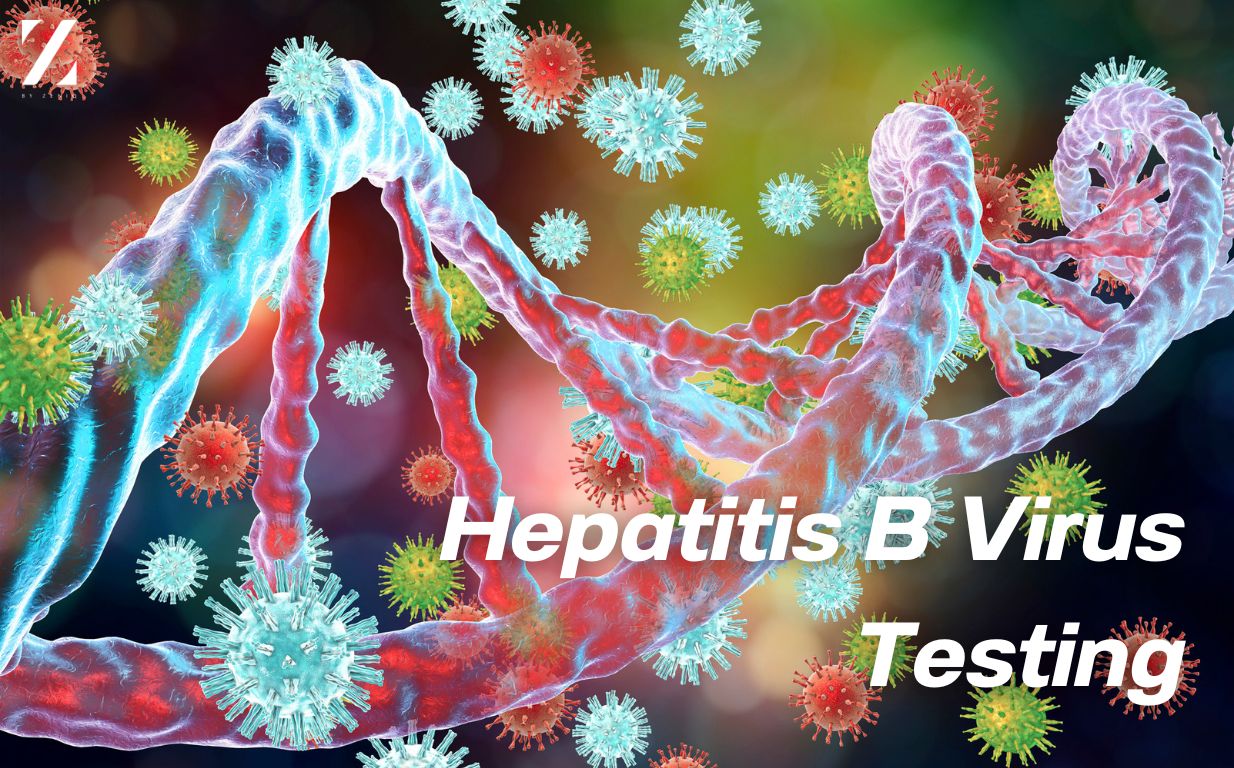The Hepatitis B Test helps detect the Hepatitis B virus (HBV), which can cause liver disease. This test helps determine the infection status – whether it is an active infection, a past infection, or has immunity from vaccination.
Types of Hepatitis B Tests
- Hepatitis B Surface Antigen (HBsAg) Test:
- Purpose: Detects the presence of the HBV virus in the blood, indicating an active infection. This is typically used for screening.
- Results: A positive result means that the person is currently infected with HBV.
- Hepatitis B Surface Antibody (Anti-HBs) Test:
- Purpose: Determines whether an individual has immunity to Hepatitis B, either from vaccination or from recovering from a past infection. It is often used to confirm immunity before working in high-risk industries (such as healthcare) or for individuals at risk to evaluate the need for a booster vaccination.
- Results: A positive result indicates immunity to the virus.
- Hepatitis B Core Antibody (Anti-HBc) Test:
- Purpose: Detects a past infection with the HBV virus, whether it was acute or chronic or if the person is still infected. This test is often done along with HBsAg and Anti-HBs to provide a complete picture of an individual’s infection status.
- Results: A positive result indicates previous or ongoing infection.
- Hepatitis B e-Antigen (HBeAg) and Hepatitis B DNA Tests:
- Purpose:
- HBeAg: Indicates the replication rate of the virus in the body.
- HBV DNA: Measures the amount of virus in the blood to assess the severity of the infection. This test is often used in chronic Hepatitis B cases to monitor the progression of the disease and response to treatment.
- Results: Positive results for HBeAg and HBV DNA suggest high levels of viral replication and may indicate a more severe or chronic infection.
- Purpose:
Steps for Hepatitis B Testing
- Preparation: No special preparation, such as fasting, is typically required unless other tests are performed simultaneously. It is important to inform the doctor if you have any chronic conditions or take medication that may affect test results.
- Blood Sample Collection: The test involves a blood draw from a vein in the arm. A healthcare professional will clean the area before drawing blood, and the sample will be sent to a laboratory for analysis.
- Post-Sample Collection: After the blood is drawn, you can resume normal activities. There may be slight discomfort or bruising at the puncture site.
- Results: Most test results will be available within 30 minutes for rapid tests or 1-2 days for tests that require more detailed laboratory analysis.
Interpreting Test Results
- HBsAg Positive: Indicates current active infection with Hepatitis B.
- Anti-HBs Positive: Indicates immunity to the virus either from vaccination or recovery from a past infection.
- Anti-HBc Positive: Indicates a past Hepatitis B infection.
- HBeAg and HBV DNA Positive: Suggests active viral replication, especially in chronic cases.
If initial results are positive, additional tests such as liver function tests, ultrasound, or FibroScan may be needed to assess liver health in more detail.
Hepatitis B Testing Services at Z by Zeniq
Z by Zeniq offers Hepatitis B testing services with rapid results, available within 30 minutes for certain tests. More comprehensive tests that require laboratory analysis typically take 1-2 days for results.
Additional Recommendations
If you test positive for Hepatitis B, ongoing monitoring of liver function and treatment by a specialist is essential for effective management. Z by Zeniq provides comprehensive care for individuals with positive test results, ensuring the best possible treatment outcomes.

